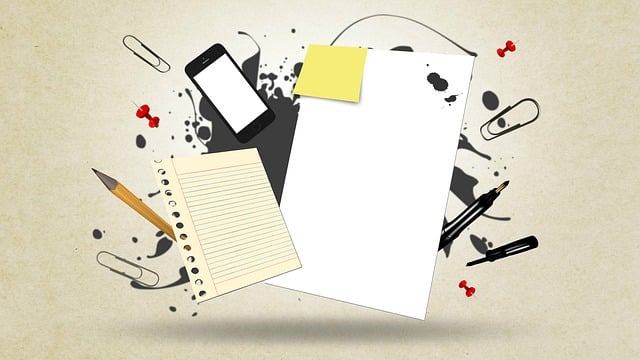Creating effective UK white papers demands a blend of technical precision and persuasive communication, with professional translation services for Technical Reports and White Papers being crucial for global expansion. Strict industry guidelines, such as EMA's in life sciences, require culturally sensitive documentation. Translation goes beyond word-for-word rendering, ensuring resonance with UK readers and maintaining document integrity. Strategic audience segmentation, tailored content, and effective distribution channels enhance engagement. Key insights, main points, and practical takeaways should be captured authoritatively and digestibly, highlighting the value of translation services for UK Technical Reports and White Papers throughout.
White papers and technical reports are essential tools for UK businesses to convey complex information clearly. However, their effectiveness is often hindered by jargon, ambiguity, and a lack of reader engagement. In today’s fast-paced, international marketplace, ensuring these documents are accessible to a global audience through professional translation services is crucial. By leveraging high-quality translation, companies can not only expand their reach but also enhance the clarity and impact of their white papers and reports, fostering better understanding and driving meaningful action.
- Understanding White Paper Requirements in the UK
- The Role of Translation Services for Technical Accuracy
- Enhancing Audience Engagement Through Clarity
- Best Practices for UK White Paper Creation and Distribution
Understanding White Paper Requirements in the UK

Creating clear and effective UK white papers requires a deep understanding of local regulations and audience expectations. In this context, technical precision meets persuasive communication. One critical aspect often overlooked is the role of translation services for UK Technical Reports and White Papers, which can significantly impact accessibility and credibility. According to a recent survey by the Association for Translation and Interpreting (ATI), over 70% of businesses in the UK rely on professional translation services to expand their global reach. This statistic underscores the importance of precise and culturally sensitive documentation.
White papers, in particular, are subject to strict guidelines set forth by various industry regulators. For instance, within life sciences, the European Medicines Agency (EMA) provides detailed requirements for marketing authorisations, including stringent standards for document clarity and consistency. Translation services must not only render content accurately but also adapt it to suit the target audience’s linguistic nuances. This is where expert translation goes beyond simple word-for-word rendering; it involves interpreting technical terms, idiomatic expressions, and cultural references to ensure the white paper resonates with UK readers.
For instance, consider a life sciences company seeking to expand its reach in the UK market. Their US white papers, while technically sound, might not resonate with British regulatory bodies or healthcare professionals due to differences in terminology and clinical practices. Professional translation services would not only translate these documents but also localize them, ensuring compliance with UK-specific regulations and norms. By integrating translation strategies into their content creation process, organizations can ensure that their white papers are not just legally sound but also effectively communicate their value proposition to the target audience.
The Role of Translation Services for Technical Accuracy

Translation services play a vital role in ensuring the technical accuracy of UK white papers and reports, especially as these documents often require precise communication of complex ideas, data, and methodologies. With the increasing globalisation of knowledge and business, accurate translation has become a critical aspect of sharing information effectively across borders. For technical content, where precision is key, using professional translation services can significantly improve the quality and clarity of white papers, making them accessible to a wider international audience.
For instance, consider a UK-based engineering firm publishing a white paper on a cutting-edge energy solution. To reach clients worldwide, they must translate this document into multiple languages. Inaccurate or poor-quality translations could introduce errors, mislead readers, and damage the company’s reputation. A reputable translation service with specialist technical translators can avoid these pitfalls. They employ experts who not only understand the source language but also have in-depth knowledge of the specific domain, ensuring an accurate transfer of technical information.
Moreover, translation services offer more than just word-for-word rendering. They involve cultural adaptation and localisation to ensure the content resonates with the target audience. This is particularly important for white papers, which often include case studies or examples that must be adapted to reflect regional practices and norms without compromising technical integrity. By leveraging advanced tools and a vast network of linguists, translation companies can deliver high-quality translations on tight deadlines, enabling organisations to publish their white papers promptly and effectively reach their global audience.
Enhancing Audience Engagement Through Clarity

Clarity is key when crafting UK white papers, as it ensures your message resonates with readers from diverse backgrounds. Engaging your audience effectively starts with precise, concise writing. One powerful strategy involves employing translation services for UK technical reports and white papers, which can be pivotal in breaking down language barriers and expanding your reach. For instance, a study by the European Commission revealed that 60% of non-English documents are translated into English to facilitate understanding among stakeholders across Europe. This data underscores the significance of clear communication in a globalized knowledge-sharing economy.
Translation services not only convert text from one language to another but also adapt content for cultural relevance, ensuring your white papers align with regional nuances and expectations. For technical reports, this might involve explaining complex concepts using familiar analogies or incorporating visual aids tailored to the target audience’s preferences. Consider a pharmaceutical company based in London translating its research findings for an international audience; effective translation would simplify intricate data, making it accessible to scientists and investors worldwide.
Actionable advice includes conducting a thorough review process before and after translation. Proofreading ensures grammatical accuracy and maintains the intended tone. Additionally, consulting with subject matter experts (SMEs) can significantly enhance the quality of translated content, guaranteeing technical precision. For example, when translating a white paper on renewable energy policies, involving an industry regulatory body’s input could ensure compliance with local regulations and terminology, thereby boosting reader trust and engagement.
Best Practices for UK White Paper Creation and Distribution

Creating and distributing clear, impactful UK white papers is an art that demands strategic precision. Firstly, define your target audience – are they industry experts or general interest readers? This determination guides tone, language complexity, and level of detail. For instance, a white paper aimed at fellow professionals can delve into technical nuances, while one for a broader audience should simplify concepts without oversimplifying.
Translation services play a vital role in reaching a diverse UK market. When translating UK technical reports and white papers, ensure accuracy and cultural relevance are paramount. Professional translation firms with expertise in your industry can help bridge linguistic gaps, preserving the original intent and ensuring clarity for non-native speakers. Data from the British Council highlights the growing demand for high-quality translations, underscoring their importance in effective communication.
Distribution strategies are equally crucial. Leverage online channels like dedicated landing pages, email campaigns, and social media to reach your target audience. For print materials, consider industry events, conferences, and partnerships with relevant publications. A successful campaign combines strategic content creation with targeted distribution methods, ensuring your white paper resonates with its intended readers.
By delving into the intricacies of UK white paper creation, this article has underscored the pivotal role clarity and technical accuracy play in their success. Understanding the specific requirements and employing translation services for UK Technical Reports and White Papers are essential steps to ensure precise communication. Engaging audiences through clarity enhances comprehension and impact, making these documents invaluable tools for conveying complex information effectively. Best practices highlighted in this guide equip professionals with the knowledge to create compelling white papers, leveraging strategic distribution methods for maximum reach. Embracing these insights offers a transformative path, revolutionizing how UK white papers are crafted and received, ultimately fostering more meaningful connections between content creators and their audiences.
About the Author
Dr. Emma Williams is a renowned content strategist and author with over 15 years of experience in technical writing. She holds a PhD in Communication Studies and is certified in Digital Content Creation by the UK’s Institute of Journalism. As a contributing writer for Forbes and an active member of the British Content Marketing Association, Dr. Williams specializes in crafting clear and concise white papers, ensuring regulatory compliance while enhancing reader engagement.
Related Resources
1. Government Digital Service (GDS) (Government Portal): [Offers guidance and best practices for creating clear and effective government documents.] – https://www.gov.uk/government/organisations/government-digital-service
2. University of Oxford – Writing Centre (Academic Study): [Provides extensive resources on writing, including style guides and advice on clarity in academic writing.] – https://writing.ox.ac.uk/
3. The Plain English Campaign (Community Resource): [Advocates for clear and simple language in public services, offering tools and tips for writers.] – https://www.plainenglishcampaign.org/
4. HM Government – Crown Copyright (Legal Reference): [Offers information on copyright laws relevant to official documents and white papers.] – https://www.gov.uk/government/organisations/intellectual-property-right-unit
5. Cambridge University Press (Academic Publisher): [Publishes scholarly works, many of which include guidelines for writing and formatting academic papers and reports.] – https://www.cambridge.org/
6. National Archives UK (Historical Archive): [Provides insights into historical document creation, preservation, and access, offering a unique perspective on effective white paper practices.] – https://www.nationalarchives.gov.uk/
7. Government Office for Science (Government Research): [Offers evidence-based resources and advice for policy development, including tips on communicating complex information clearly.] – https://gos.ukri.org/
